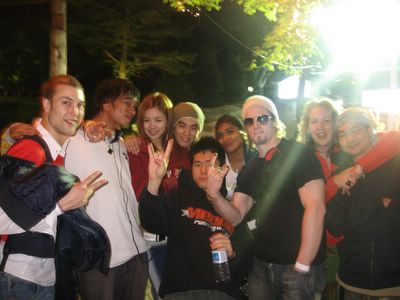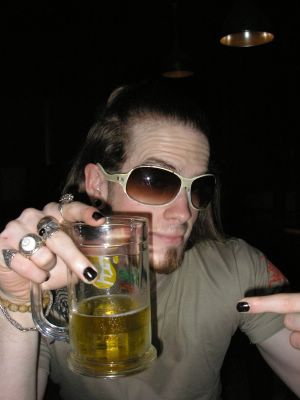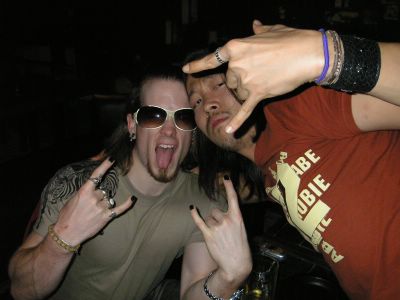생각하다
Having modestly documented an unnecessary number of party and celebratory experiences, I've come to the realization that there are in fact many more important ideas to discuss; living abroad is not simply about finding out where the cool cats party (although in my opinion it showcases a certain level of dedication to Korean subculture and language to do so), but also offers an atmosphere for contemplation, examination and scrutiny.
Recently, at a friend's birthday party, I met a middle-aged Korean man who I became enamoured talking with. His perspective offered a lot of insight into the perceptions that the modernized Korean mindset displays. In our discussion of wayward politics and problematic cultural trends, he wanted to point out clear misunderstandings provided to a culture that is largely subsistent on its own superiority due to a tragic past. (However, as another friend, Sungwon put it, this past really consists of only the last 100 years, not an eternal plague that has daunted Koreans since the onset of existence - his thoughts can be found here: http://oathean.livejournal.com/)
Many native students (as well as prospective adults) frequently declare that Korea is great and that many things found in Korea are the best (patriotism is encouraged in the urban school systems, and a new-spawning nationalism is stirring). However, the question that needs to be asked (and rarely is) is "compared to what?" How do we, as a productive species, measure something like the relative worth of a nation or its people or its creative capacity? Most, if not all of our opinions spring essentially from a comparison to something else. For example, why is Korean cinema the best? Because it's better than Hong Kong cinema. Why is McDonald's great? Because it tastes better than San Geop Sal. Why are the Japanese bad? Because they're not like Koreans. This question of allocating judgement of superiority and inferiority based on simple comparisons is not justifiable; it is similar to the unusual ideas that particular government decisions involve, which attempt to ratify complex ideas and situations into basic ones. For example - Problem: crime. Solution: increase surveillance by installing 20,000 CCTV cameras. This is not an adequate solution, nor has the identified problem been explained fully. The type of information missing is what type of crime, where, under what circumstances, how will CCTV fix this, why did CCTV become the desired solution, etc. etc.
Due to the reflection on particular aspects of Korean history, many Koreans perceive themselves and their country as victims. However, the sons and daughters of WWII holocaust survivors can hardly acclimatize themselves as victims, given that they were not directly involved with that tragedy, which is in my opinion an analogous comparison. However, here is me engaging myself in that same earlier stated problem - "compared to what?". We use comparisons in order to create a scope or climate of understanding so that we can replace our lack of knowledge concerning a given topic using something we can understand more easily. And that's the clincher - we do it because it's easier. The problem or topic we are attempting to understand does not necessarily become clearer simply because we offer something else to relate it with. Instead of focusing on how one particular thing relates to another, perhaps we can examine how it works and how to improve it or make it more accessible. The competitive atmosphere of modern capitalism is strongly based on this desire to compare and subsequently to also overcome. And what this does is remove an essential part of spiritual life, the pursuit of self.
Going back to the idea of the 'eternal victim', growth is difficult to foster under a guise of victimization. How is it that so many young Koreans can adopt a personal hatred for the Japanese? Did the current Japanese population torture them, attempt to destroy their language and force their women into bondage and men into military? Of course not. That notion is absurd, given that those groups of Japanese government agents and officers responsible for past injustices that Korea endured are largely deceased. Furthermore, the current generation of Japanese do not act with overt prejudice towards Korea and its people. Psychologists often offer the advice that, during the course of a romantic relationship, one should not dwell on the past but instead force oneself to live in the present. I think this consideration is not bound only to romantic relationships, but also to cultural ones.










